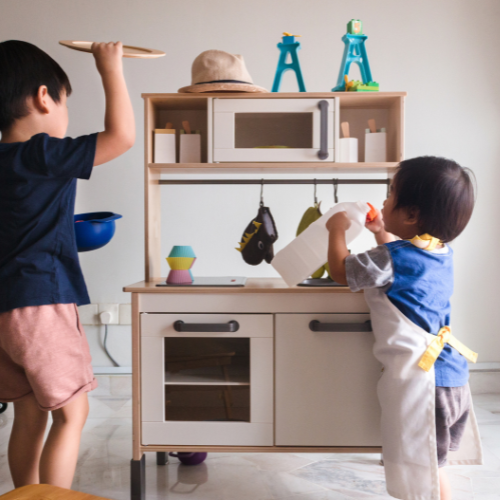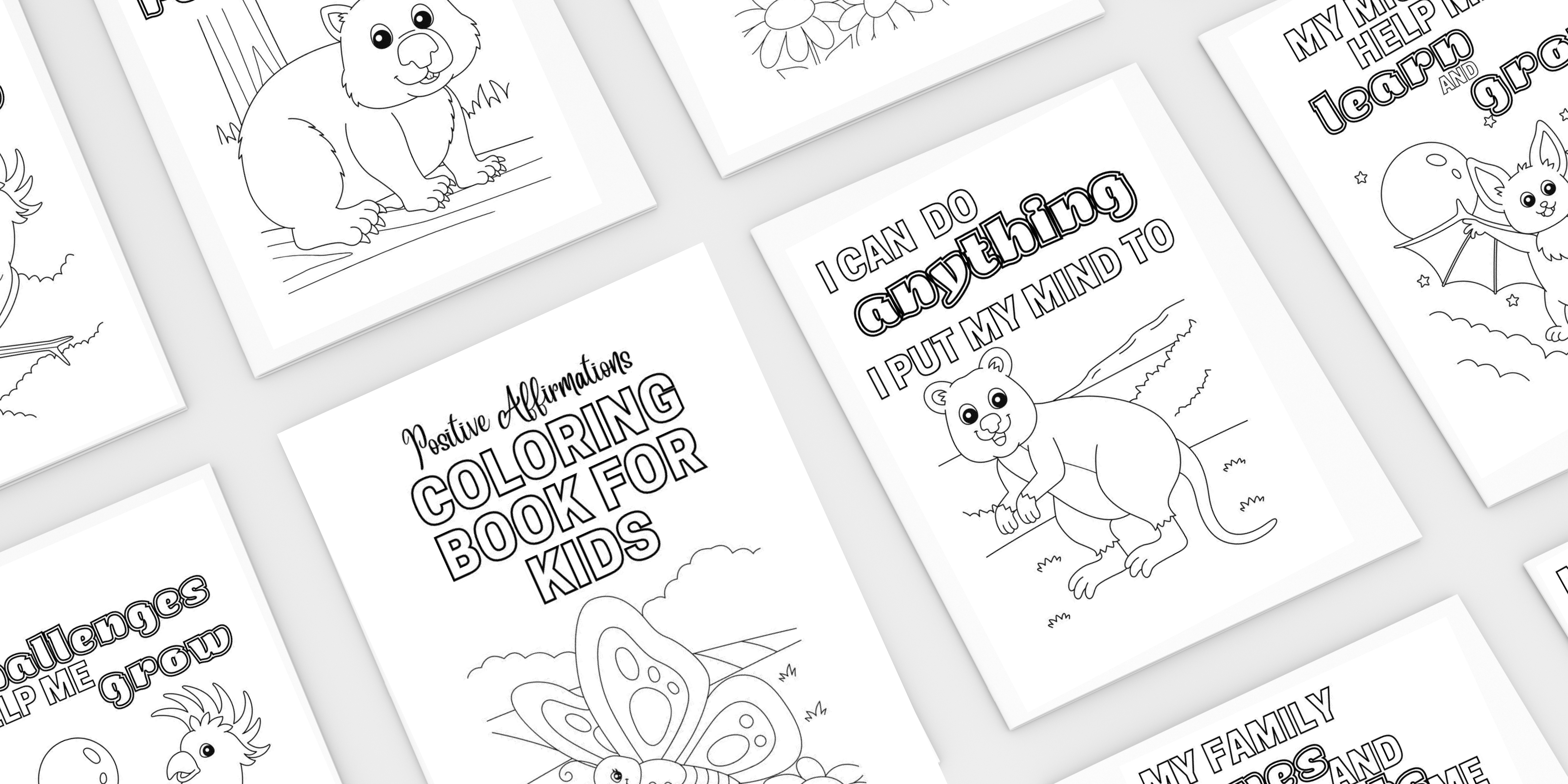As a mom of three, I know firsthand how challenging it can be to improve toddlers’ listening skills. Toddlers are in a phase of their life where they are developing rapidly, both physically and mentally, and this can affect their behavior and communication skills.
As moms, we all want our children to succeed in life, and one essential skill that can help them is listening. In this blog post, I want to share my experience and tips on how to improve toddler listening skills effectively. I hope this article will be helpful to you and your little ones.
My favorite book on the subject is called How To Talk So Little Kids will Listen and it’s a worthwhile read if you are really struggling, but for now I do have some great tips for you.
So, let’s dive in and get started!

Understanding Toddler Behavior
Understanding toddler behavior is a crucial step in improving their listening skills. As a mom of three, I know how challenging it can be to deal with stubborn toddlers.
However, I also know that every child is unique, and their behavior can be influenced by their developmental stages, including cognitive, emotional, and social development. All my children were so different, it’s amazing really.
Cognitive development plays a vital role in how toddlers process and understand information. They may not be able to follow complex instructions or communicate their needs effectively. As parents, we need to use simple, clear language to help them understand what is expected of them.
Emotional development is also a significant factor in toddler behavior. Toddlers may become frustrated or overwhelmed, leading to disruptive behavior. It’s important to recognize and address their emotions to help them feel understood and supported.
Social development is another crucial factor that influences toddler behavior. Toddlers are still learning how to interact with others, share, and take turns. As parents, we can help by teaching them social skills and providing a safe and supportive environment for them to learn.
Active Listening
Active listening is a critical skill that can help improve toddler behavior and communication. As a mom, I’ve learned that active listening requires patience, focus, and clear communication. It involves paying attention to what the other person is saying and responding appropriately.
Here are some tips for encouraging active listening in toddlers:
Get down to their level: Toddlers respond better when we speak to them at eye level . By getting down to their level, we can make it easier for them to focus on what we’re saying.
Use simple and clear language : Toddlers may struggle to understand complex instructions. It’s essential to use simple and clear language to communicate effectively. Avoid using negative language and instead, focus on positive reinforcement.
Use positive reinforcement: Praising toddlers for their efforts can encourage them to listen actively. By acknowledging their good behavior, we can reinforce the importance of listening skills.
Be patient and calm: Toddlers may take some time to process information and respond appropriately. It’s important to be patient and calm when communicating with them.

Setting Boundaries
Be clear and consistent: Toddlers need clear and consistent boundaries to understand what is acceptable behavior. It’s essential to establish rules and consequences and communicate them clearly. Basically, tell them they can’t eat on the couch and then do not let them eat on the couch!
Keep it simple: Toddlers may struggle to understand complex rules. It’s important to keep it simple and focus on the most important behaviors.
Set age-appropriate expectations: Toddlers are still developing their social and emotional skills. It’s essential to set age-appropriate expectations and adjust them as they grow.
Reinforce positive behavior: Positive reinforcement can encourage toddlers to follow the rules. By acknowledging their good behavior, we can reinforce the importance of boundaries. Clapping and celebrating are great ways to tell your toddler you’re happy with their choices.
Be firm but loving: Setting boundaries can be challenging, but it’s important to be firm yet loving. Toddlers need to know that we are setting boundaries to help them grow and develop. You can definitely still have rules, don’t let your little one walk all over you.
By setting boundaries, we can help toddlers understand what is expected of them and build a strong foundation for effective communication. So, let’s establish clear rules and consequences and reinforce positive behavior to help our little ones thrive.
Encouraging Independence
I know it’s faster to get things done if you just do them, but sometimes you have to let your toddler try. It could be anything! Putting on boots, taking off a jacket, putting the dishes away…literally anything.
By providing them with opportunities to be independent, we can help them develop self-confidence and essential life skills. Here are some tips for encouraging independence in toddlers:
Give them choices: Toddlers may feel more empowered when given choices. It’s important to provide them with age-appropriate choices to help them feel in control of their decisions.
Let them help: Toddlers may enjoy helping with daily tasks such as setting the table, folding laundry, or cooking. By involving them in household tasks, we can help them develop essential life skills and feel a sense of accomplishment.
Encourage problem-solving: Toddlers may encounter challenges that require problem-solving skills. It’s essential to encourage them to solve problems independently by providing guidance and support.
Allow them to explore: Toddlers love to explore their surroundings. It’s important to provide a safe and supportive environment for them to explore and learn.
Praise their efforts: Encouraging independence requires patience and support. It’s important to acknowledge their efforts and praise them for their accomplishments.
Avoiding Distractions
Distractions can be a significant barrier to productivity and focus, especially in today’s digital age. Avoiding distractions is essential to achieving our goals and staying on track. Here are some tips for avoiding distractions:
- Set clear goals: Having clear goals can help us stay focused and motivated. By establishing specific and achievable goals, we can prioritize our tasks and minimize distractions.
- Create a distraction-free environment: Creating a workspace free of distractions can help us stay focused. Turn off notifications on your phone, close unnecessary tabs on your computer, and avoid working in a noisy or cluttered environment.
- Use time-blocking: Time-blocking is a productivity technique that involves scheduling specific blocks of time for specific tasks. By breaking down our day into chunks of time, we can focus on one task at a time and avoid distractions.
- Practice mindfulness: Mindfulness is a practice that involves being present and fully engaged in the moment. By practicing mindfulness, we can improve our focus and attention and reduce distractions.
- Take breaks: Taking regular breaks can help us recharge and refocus. Schedule short breaks throughout the day to stretch, take a walk, or practice deep breathing.
- Set boundaries: Setting boundaries with others can help us avoid distractions. Let your family, friends, and coworkers know your work hours and when you are unavailable.
Avoiding distractions can be challenging, but with practice and discipline, we can improve our focus and productivity. So, let’s set clear goals, create a distraction-free environment, use time-blocking, practice mindfulness, take breaks, and set boundaries to minimize distractions and achieve our goals.
When You Notice Your Toddler Losing Attention Span
If you notice that your toddler is losing their attention span, try some calming activities like:
- Reading books together: Reading books can be a great way to calm down and spend quality time with your toddler.
- Quiet play: Encouraging quiet play, such as coloring or building with blocks, can help your toddler relax and focus on a task.
- Listening to calming music: Playing soothing music can help create a peaceful environment and promote relaxation.
For more calming activities read here.
Helping Your Toddler Learn Listening Skills
As parents, we play a vital role in shaping our toddlers’ behavior and helping them develop essential life skills. By practicing active listening, setting boundaries, encouraging independence, avoiding distractions, and engaging in calming activities, we can create a positive environment that fosters our toddlers’ growth and development.
We can also encourage healthy eating habits and renew our toddlers’ interest in their toys by rotating, engaging in play, and providing new challenges.
As we navigate the joys and challenges of parenthood, let us remember to celebrate the small victories, be patient with ourselves and our children, and most importantly, enjoy the journey.







Leave a Reply